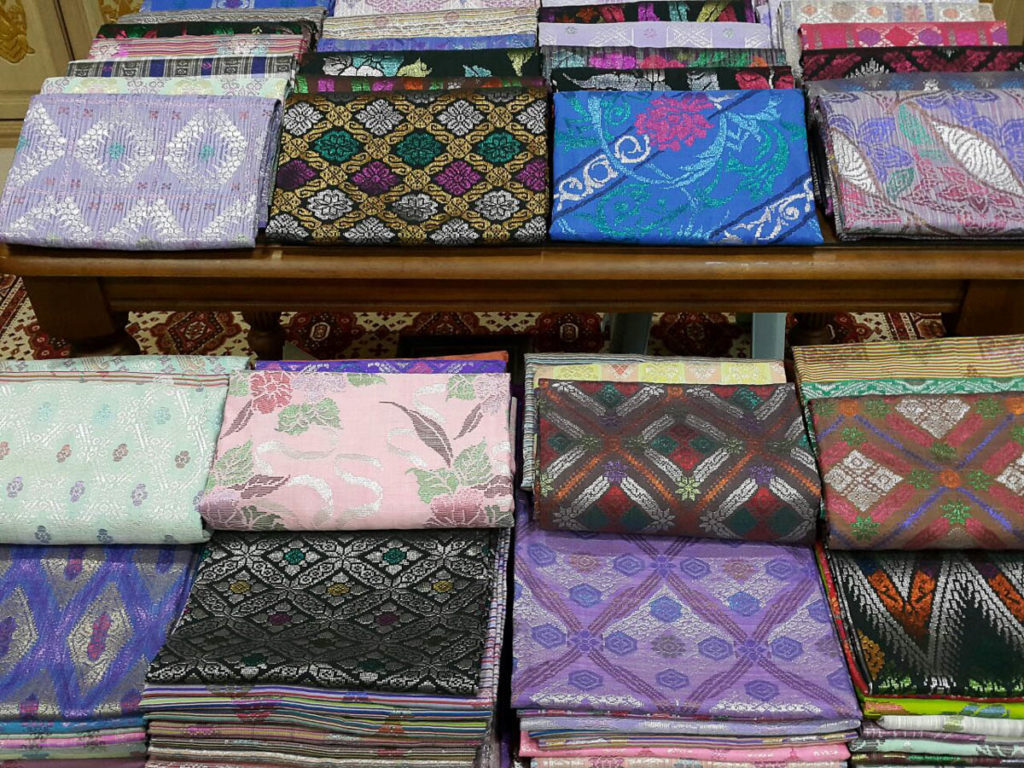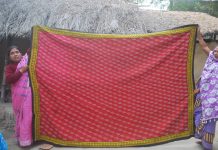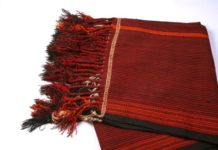
Malaysia is a tropical country blessed with a multicultural population, rich natural resources and a long cultural heritage. Following centuries of trade and cultural exchange, including the importation of luxury textiles, cotton, silk yarns and the frame loom, an array of quintessentially local textile traditions evolved among the Malay community, many of them still made today. These include hand-woven textiles such as songket and tenun, initially the preserve of royalty and the affluent for ceremonial occasions; surface decorated textiles like batik cap and batik lukis, inspired by Javanese techniques for a wider audience; and embroidered textiles like tekat and kelingkan, originally also court arts.
Songket involves the weaving of silk or cotton with metallic thread in supplementary weft, while tenun features the weaving of silk or cotton in striped and plaid or chequered patterns. Tekat, on the other hand, is a couching technique featuring gold threads laid over a template on a velvet background. In contrast, kelingkan is an embroidery technique that employs the use of metal ribbon on soft fabrics like satin, voile and damask. These Malay textiles are essential to community life, rituals and ceremonies, and are time-honoured traditions in their own right.

The east coast states of Peninsular Malaysia, particularly Terengganu and Kelantan, are considered the heartland of Malay textiles and crafts. From time immemorial, the Malay kingdoms forged maritime trade links with China, India, Arabia, Europe and the Southeast Asian region. Trade and cultural exchange offered fertile opportunity for the transfer of skills, techniques, technologies, materials and even motifs, ensuring that Malay textiles did not develop in isolation.
Various parties have played a vital role in upholding and sustaining Malay textile traditions, including organisations like the Department of Museums Malaysia, Malaysian Handicraft Development Corporation, Islamic Arts Museum Malaysia, National Textile Museum, National Craft Institute and Yayasan Budi Penyayang; cultural activists like Azah Aziz, Raja Fuziah Raja Tun Uda and Tengku Ismail Tengku Su; as well as royal patrons such as Tunku Azizah Aminah Maimunah Iskandariah of Pahang and Sultanah Nur Zahirah of Terengganu.




